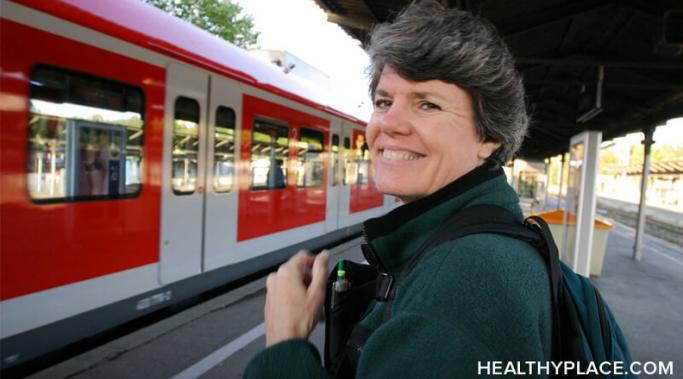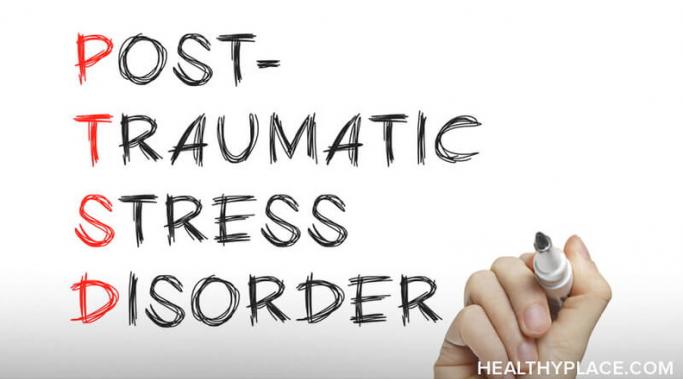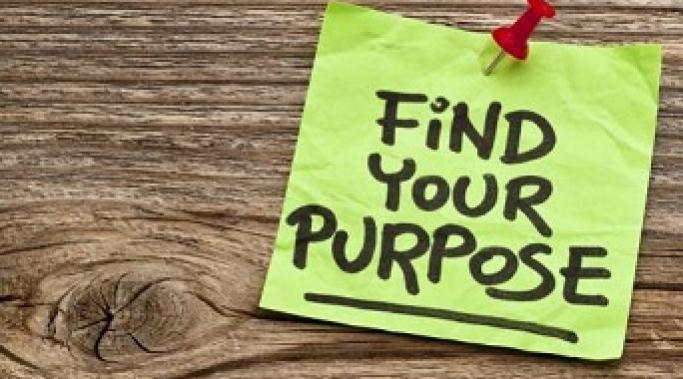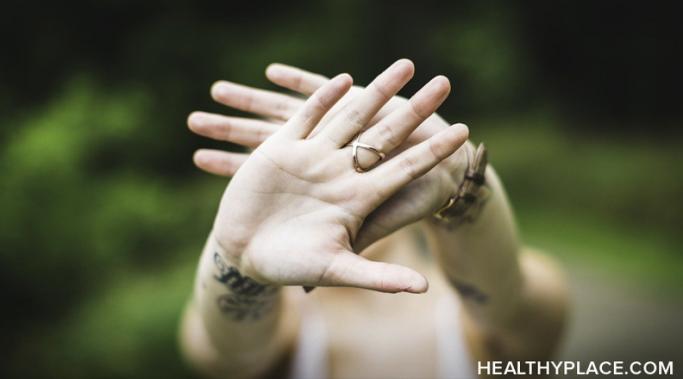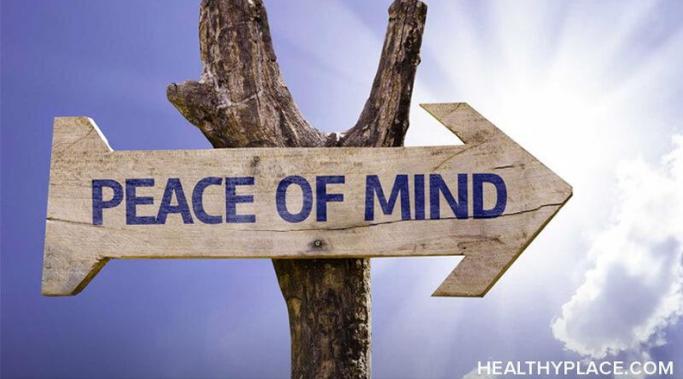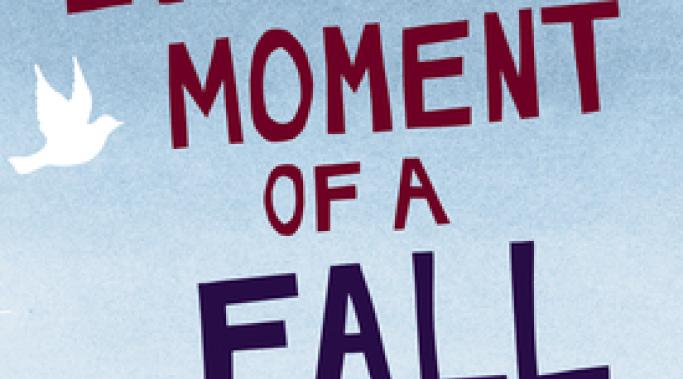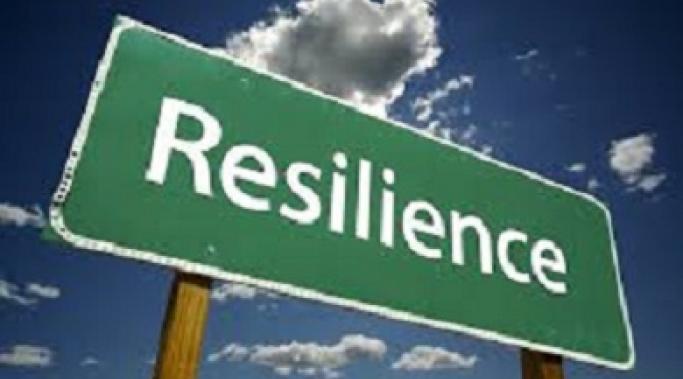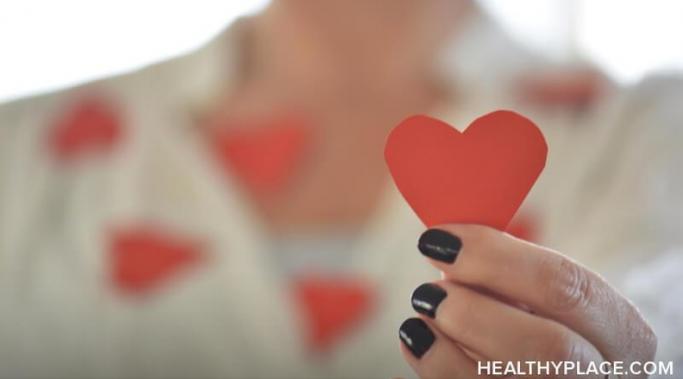Travel anxiety and posttraumatic stress disorder (PTSD) magnify the tension of planning and leaving on a vacation. The traveling, the unknown venues, crowds, open spaces and other unpredictable scenarios can make many PTSD symptoms such as anxiety, depression, dissociation and fatigue more prominent. Of course, having PTSD doesn’t mean you should stay close to home. By taking some extra time to detail your travel plans, you can handle travel anxiety and PTSD.
PTSD Recovery Tips
When you are living with a mental illness like posttraumatic stress disorder, setting and working toward specific goals is sometimes challenging. As someone who has posttraumatic stress disorder (PTSD), I know that there are times when my PTSD symptoms are worse than others and those times are often hard to predict. So when I set goals with PTSD, regarding either my recovery or other aspects of life, I try to keep in mind that I may have more to deal with than others who don't suffer from a mental illness (How to Build Confidence and Achieve Your Goals).
It's natural to ask, "Why me?" about your trauma and posttraumatic stress disorder (PTSD) but I have found purpose in my PTSD. I have found that when you are able to discover real meaning and purpose in the trauma that have happened to you, not only does it provide you with some peace of mind and a sense of accomplishment, but also helps with managing PTSD symptoms. Here are tips on finding purpose in your PTSD.
There is no doubt that it's often hard to recognize the progress in posttraumatic stress disorder (PTSD) recovery. The symptoms of PTSD can be overwhelming and seem to be never-ending. Many times, in my own PTSD recovery, I feel like it's one step forward, two steps back -- and my focus is usually on the two steps back. But when I actually choose to look at the one step forward instead, I find that I am making progress, and that recognizing progress in PTSD recovery is important.
Coping with feeling overwhelmed while in recovery from posttraumatic stress disorder (PTSD) can be challenging. I know when I become overwhelmed with anything--emotional, physical, or mental--I am likely to just want to shut down and avoid life. My anxiety kicks in and it feels like everything is out of control, moving too fast, and I become irritable, whiny, and tired. Sometimes when that happens, I absolutely need a full-stop (a nap or a good night's sleep) to recharge and feel better. But more often, I'm able to use coping skills that I have learned in PTSD recovery to deal with feeling overwhelmed (What's Your PTSD Recovery Program?).
It is the age of the smartphone, and there is a mobile app for everything--including mental health recovery apps. You can find applications designed to help with everything from depression and anxiety to posttraumatic stress disorder (PTSD), addiction recovery, eating disorders and self-esteem. Some offer interaction with others in recovery, some provide feedback and advice based on the information each individual records, and some simply give users techniques for reducing anxiety and encouraging gratitude and optimism. No app is meant to take the place of face-to-face treatment, but I have found these mental health recovery apps you should try can be a useful addition to my mental health recovery.
Are you are interested in taking a closer look at how eye movement desensitization and reprocessing (EMDR) therapy works for recovery from posttraumatic stress disorder (PTSD)? If so, I recommend a book I read recently, Every Moment of a Fall, A Memoir of Recovery Through EMDR Therapy, by Carol E. Miller. The book gives a first-hand account of what EMDR therapy is like and how it helps with PTSD recovery (see also PTSD Treatment: My Experience With EMDR Therapy).
Learning to increase my resiliency when dealing with posttraumatic stress disorder (PTSD) symptoms and everyday stress has been essential in my PTSD recovery. While I thought that resiliency was something that would just naturally follow working an active wellness treatment plan, I have found that resiliency is actually something that can be built and strengthened during recovery, and it can be done by learning to be proactive in a few simple areas when triggered or stressed. As I have increased my resiliency, my PTSD symptoms have lessened and my stress and anxiety have decreased, making everyday life much more enjoyable.
I have found that there are some really good reasons that we should not compare our posttraumatic stress disorder (PTSD) recovery to the recovery of others. It's easy to get caught up in the comparison of your recovery process to the processes of others. After all, you are going through the same types of struggles and are dealing with the same types of symptoms (PTSD Symptoms and Signs of PTSD). Not to mention we often find a lot of similarities that allow us to relate to one another, and that is beneficial -- it lessens the feeling that we are alone. However, while that type of peer support is helpful to us, comparing our progressions in PTSD recovery is not.
I've learned about the benefits of practicing self-compassion in PTSD recovery. In my last post I talked a little bit about using self-compassion as one way of dealing with posttraumatic stress disorder (PTSD) and the shame that is associated with trauma. In this post, I want to dig deeper into how to be kind to ourselves and cultivate a practice of self-compassion to alleviate some of the symptoms of PTSD. Being kind to myself is something that I know I need to do more of, but it isn't something that comes naturally to me, and I suspect that is true for many trauma survivors. When I am able to practice self-compassion in PTSD recovery, I find that dealing with PTSD symptoms is easier and my negative self-talk and feelings are lessened.
